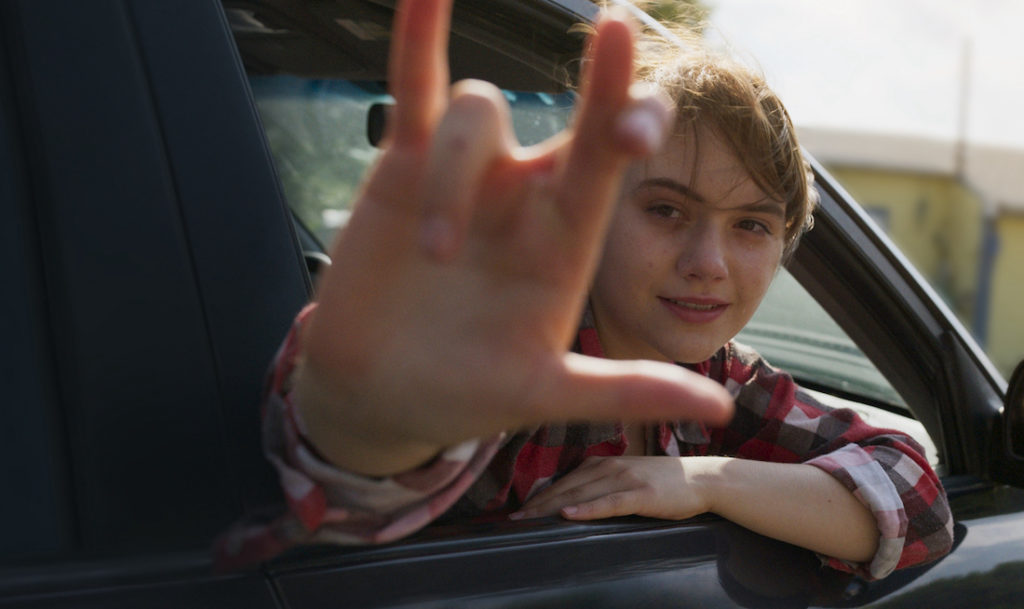
If you want to impress a professional script reader, you might want to make sure your story has a great theme.
What kinds of issues does a script reader come across when giving feedback to writers? When talking to script readers about the most common notes that arise when writing script coverage, the concept of “theme” came up repeatedly. What was interesting was the many ways a story theme could need improving. Theme is the core of your script. The best scripts will use it to connect everything, so it needs to be present in every major piece of your story.
Enter your script into the Launch Pad Feature Film Screenwriting Competition!
Connect Your Story Theme to Your Premise
When you read a script’s logline or see the trailer of a new project, the theme is often clear from the premise. Comedies, in particular, tend to have very loud and simple themes. For example, a buddy comedy will often thematically deal with how people can come together in spite of their differences. The situation your protagonist finds themself in will teach them a lesson and challenge them along the lines of the theme.
A film filled with a few themes is Don’t Look Up by Adam McKay. The core premise follows a pair of scientists trying to warn everyone in the world of an asteroid on a crash collision course with earth and who are met with increasingly frustrating reactions from a world of people going to extreme lengths to ignore the truth. The film’s primary theme is not remotely subtle as it comments on global warming and how scientists, the media, and political leaders are at odds with finding a solution and losing perspective on what’s most important.

‘Don’t Look Up’ (2021)
Connect Your Story Theme to Your Protagonist’s Arc
Working in tandem with your premise is your protagonist’s emotional journey. Whether the character is overcoming trauma, letting go of an internal “flaw,” or learning a life lesson, your character will change over the course of your script. How they change creates a message that they learn and your audience “learns” alongside them.
For example, in the film Clueless, Cher Horowitz is a caretaker of everyone around her, but how she takes care of people is driven by society’s rules and her judging of others. We love Cher and her world the entire way through. And while the viewers might not be shallow as Cher, we learn how flawed her earlier thinking was alongside her.
If you’re dealing with a character overcoming past trauma, a great television example is The Flight Attendant, which follows alcoholic Cassie struggle to remember how she wound up in bed with a dead man while on a work trip. Cassie has many habits born out of covering up her fears and addiction, and the audience goes in deep with her as she works out the mystery while also confronting her wrongly-framed memories from throughout her life.

‘The Flight Attendant’ (2020-)
Connect Your Story Theme to Your Antagonist
Antagonists come in many forms. They can be a large organization, the protagonist’s self-destructive behavior, or society’s rules. However, we usually consider “antagonists” as an individual. But they don’t just have to be clear villains and can instead exist on a spectrum with your protagonist in the middle between two ideologies. It’s similar to having a “good angel” and a “bad angel” on your shoulders. Antagonists can be positive or negative as they fight to win a debate played out over the protagonist.
The ideologies, or opposite ends of the antagonist spectrum, do not have to be so cut-and-dry. In the blockbuster Marvel film Black Panther, protagonist T’Challa struggles over whether to keep his kingdom isolationist and protected or reveal Wakanda to the world fully. Two arguments are being made at T’Challa, and both are to bring out Wakanda but for very different reasons. T’Challa’s life-long friend and love interest, Nakia, sees all the ways Wakanda can help people around the planet.
On the other side, his newly-found cousin, Erik Killmonger, sees expanding Wakanda as a power move they deserve after hiding for so long. While the audience can guess which one T’Challa will choose in the end, they also touch on the more complicated issues and how they relate to real-world topics of race, cultural appropriation, etc., which are the core themes of this film. As Nakia and Erik make their cases verbally and actively, they constantly challenge T’Challa in different ways that bring the theme forward.

‘Black Panther’ (2018)
Connect Your Story Theme to the World
The world your story lives in, no matter how much it’s based on our world, is still a filtered view with a message and theme for the audience. It can be the hardest way to bring out your script’s theme unless you’re telling a science fiction or fantasy story that presents a clearly-heightened world. But all stories rely on the world to help bring forward the script’s theme.
Take, for instance, the Oscar-winning film CODA, which centers on Ruby, a “child of deaf adults” who wants to help her family’s struggling fishing business while also dreaming of becoming a singer. The world that Ruby lives in is incredibly specific. Ruby’s life-long dream has a clear emotional conflict with her parents. But even where Ruby lives, how the people operate, and the expectations and assumptions made by the people around her all add to the core theme of trusting and leaning on the people around her. It’s not just about Ruby believing that her family will support her, it’s also about the people in town learning sign language and supporting the family.

‘CODA’ (2021)
Bringing it All Together
You’re already juggling a lot as you’re putting your script together, and it’s no simple task. Maybe this is why so many scripts feel as though the theme is murky or not followed through on. As you’re working to bring your story to life, always ask yourself what the simplest way to describe your theme is. And, don’t lose sight of that guiding concept. The more you can infuse your theme into the premise, protagonist, antagonists, and world, the more likely you will rise to the top of the pile when you send in your script>


